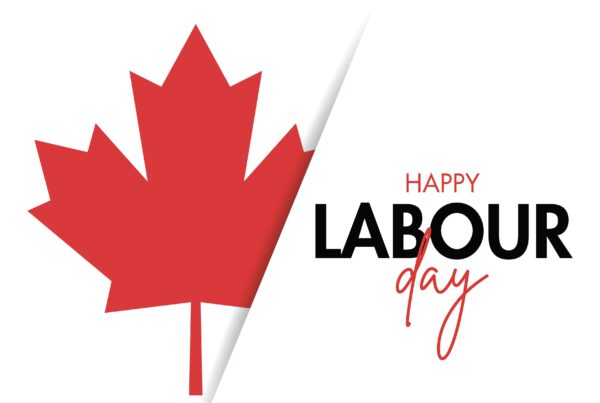I’m naturally optimistic but there are, I think, objective reasons for us to be concerned. I fear that we may be witnessing a fundamental shift in our socio-economic environment, one that could completely upend the kind of life that many of us, in developed countries, expect and take for granted. Should this shift come to pass, the result will be traumatic on a societal level and I’m especially concerned about the generations to come.
As most of us already know, precarity of work is fast becoming the norm rather than the exception and the number of people who fall into the category of “vulnerable workers” is on the rise. In the words of the Law Commission of Ontario: “Over the past several decades, the standard employment relationship – based on full-time, secure work, where employees have access to good wages and benefits – has ceased being the predominant employment structure. In its place, part-time, temporary and casual forms of work have become increasingly common.”
In developed countries, much of this dislocation, as well as the growing inequality that follows in its path, is being driven by technological change. As the IMF indicated in a recent paper:
“The empirical analysis points to a dominant role of technology and global integration in this trend, although to different degrees between advanced and emerging market economies. Technological progress, reflected in the steep decline in the relative price of investment goods, has been the key driver in advanced economies, along with high exposure to routine occupations that could be automated, with global integration playing a smaller role.”
Innovation and technological change are not about to slow down. Whether or not technological progress has resulted in a better life for us as a species is an open question and if there is no doubt in your mind that the answer is “yes”, I would recommend that you read Yuval Noah Harari’s ‘Sapiens’, which offers a thought-provoking, if often uncomfortable counterpoint.
In any event, the trend towards technological change does seem to be accelerating and in the process, we keep sliding ever more towards what economists Robert H. Frank and Philip J. Cook referred to as a “Winner-Take-All Society”. But since the expression was coined two decades ago, things have taken a turn that the authors themselves had not anticipated.
As Richard Florida points out in his recent book ‘The New Urban Crisis’, inequality in a country like America “has risen at a stupefying rate over the past couple of decades.” (page 82) And as Joseph Steiglitz, winner of a Nobel Prize in Economics explains in ‘The Price of Inequality’: “Widely unequal societies do not function efficiently, and their economies are neither stable not sustainable in the long term.” (page 83) He goes on to highlight the gravest danger that emanates from such an environment, namely, “the erosion of our sense of identity in which fair play, equality of opportunity, and a sense of community are so important.” (page 117). For Steiglitz, this puts democracy itself at risk.
We have started to experience, in many countries, the results of this erosion of our collective sense of identity. What is unfolding before our very eyes is the development of a splintered society, one characterized by a complete breakdown of trust between people and groups entrenched at opposing ends of various ideological spectrums (‘or spectra’ for purists). Mistrust and reciprocal misunderstanding are rampant. People live in bubbles, safely isolated from ideas that they disagree with, and refuse to even engage in discussion with anyone holding opposite views, views which are automatically deemed to be offensive.
More and more in fact, opposite points of view are to be silenced completely for fear that hearing them uttered out may be too unsettling. In such a context, any chance encounter between estranged solitudes quickly turns strident, when not violent. Civic discourse is no longer civil discourse and hopes of bringing holders of opposite tenets into an open and constructive debate of ideas appear more remote by the day.
It’s tempting for parties on either side of the ideological divide to look for comfort in laws – some seeking to expand free speech while others demand to be protected against the free speech of others. But these protections only go so far and lose much of their strength once the social fabric has become frayed. In “Political Order and Political Decay”, Francis Fukuyama sums things up in these words: “The Confuceans were right in arguing that no set of rules can ever be adequate to produce good results in all cases. There is an intangible factor that needs to be present to make the political system work, which is trust.” (page 522). He later adds, ominously: “Violence has frequently been necessary to overcome institutional rigidity and political decay.” (page 538)
Unfortunately, signs of decay and rigidity are starting to appear everywhere one looks. The tone from the top does matter so it is perhaps not surprising that discourse – both public and private – seems to grows more poisonous by the day. In a sad twist, our discourse grows more poisonous as our planet grows more toxic, and while we may feel in both cases that we will catch things before we reach the point of no-return, societies have proved notoriously bad throughout history at hitting the brakes before it’s too late. Drawing an analogy from the world of ecology, I am reminded here of the famous quote by Pulitzer-winning author Jared Diamond in ‘Collapse: How Societies Choose to Fail or Succeed’:
“I have often asked myself, “What did the Easter Islander who cut down the last palm tree say while he was doing it?” Like modern loggers, did he shout “Jobs, not trees”? Or: “Technology will solve our problems, never fear, we’ll find a substitute for wood”? Or: “We don’t have proof that there aren’t palms somewhere else on Easter, we need more research, your proposed ban on logging is premature and driven by fear-mongering”? (page 114)
From a business standpoint, it’s good to remind ourselves from time to time that companies and businesses don’t hover magically above society, operating in a closed system disconnected from the environment that sustains them. Businesses send out roots that are embedded deeply into the social fabric and like plants and animals, they tend to struggle in an unwelcoming environment. We are, collectively, the social fabric in which businesses will thrive or fail.



